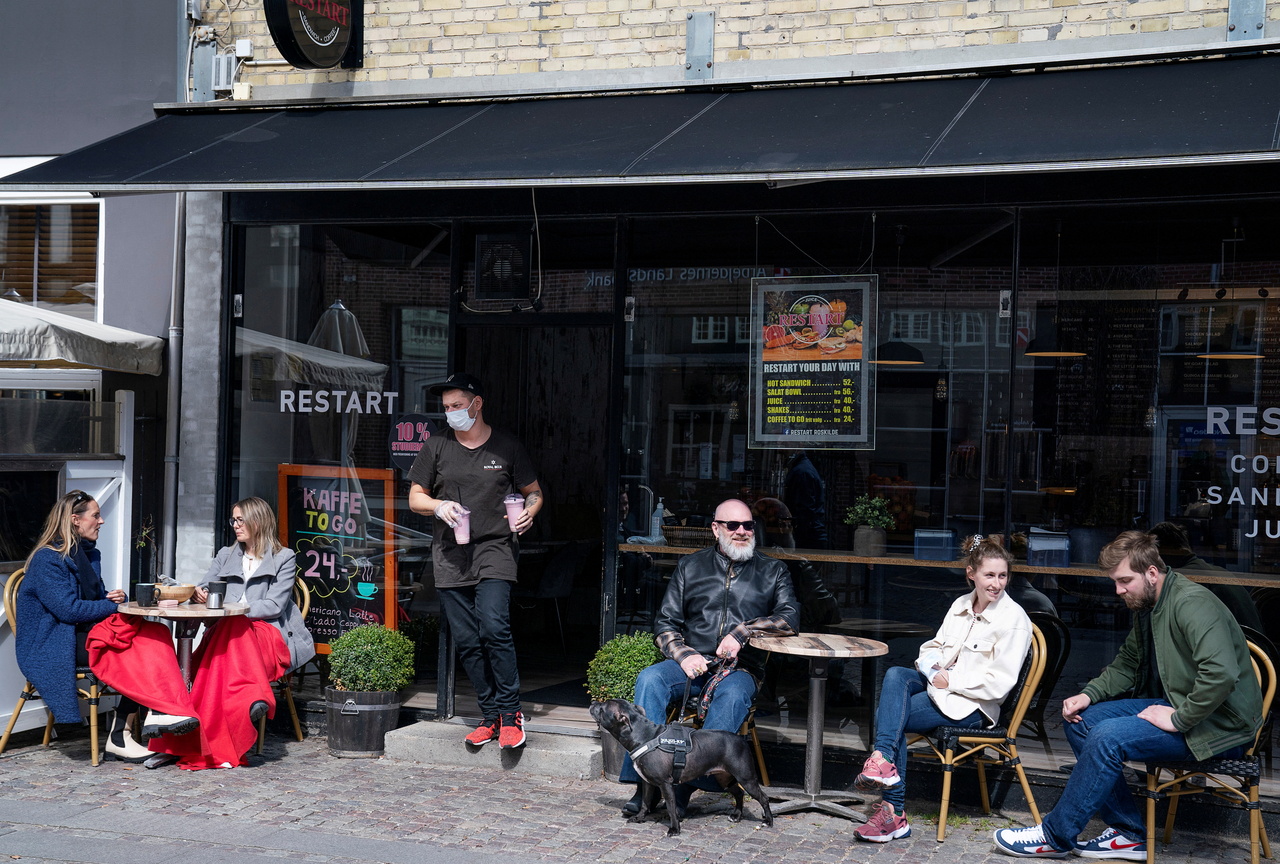Denmark to lift Covid-19 curbs in return to 'life as we knew it'
Sign up now: Get ST's newsletters delivered to your inbox

People at a cafe in Roskilde, Denmark, on April 21, 2021.
PHOTO: REUTERS
Follow topic:
COPENHAGEN (AFP) - Denmark will remove virtually all Covid-19 restrictions from next Tuesday (Feb 1) despite record infections, counting on a high vaccination rate to cope with the milder Omicron variant, the government said.
"We are saying farewell to the restrictions and welcome to life as we knew it before corona," Prime Minister Mette Frederiksen told a press conference on Wednesday.
Denmark is set to become the first European Union country to lift domestic curbs despite the Omicron wave sweeping the continent, according to a survey of AFP bureaus.
The successful vaccine programme proved a "super weapon", Ms Frederiksen said. "It has given us a solid defence against infection that continues.
"That's why the government decided that the coronavirus should no longer be considered a threatening disease for society."
This means the de facto lifting of all domestic Covid-19 restrictions, including the use of a vaccine pass, mask-wearing and early closing for bars and restaurants.
Denmark intends, however, to keep some border measures in place for another four weeks, including tests and/or quarantine depending on travellers' immunity status.
The Scandinavian country had already lifted all restrictions on Sept 10, before reintroducing the use of a Covid-19 pass at the beginning of November and later bringing in new restrictions as cases soared again.
In neighbouring Sweden, the authorities announced that current restrictions would remain in place for at least another two weeks.
However, Health Minister Lena Hallengren said the "majority of restrictions" could be removed on Feb 9 if "the situation has stabilised then".
Faced with a lower level of hospitalisation than in previous waves, several European countries, including France, Ireland and Britain, have announced the lifting or a considerable reduction of their restrictions, despite record or very high cases.
In England, the only legal restriction in place from Thursday will be for people who test positive for Covid-19 to isolate.
In Denmark, the health authorities "recommend" that people who test positive isolate for four days.
The country of 5.8 million people registered 46,000 new Covid-19 cases on Tuesday, a very high level, but its "current assessment is that the epidemic will soon peak".
More than 60 per cent of Danes have received a third dose, one month ahead of the health authorities' schedule.
In the last week, the most vulnerable people have been able to have a fourth jab.
While the number of people hospitalised with Covid-19 continues to rise and has now exceeded 900, the health authorities said the situation was under control.
At the beginning of January, the number of hospitalisations was up 16 per cent even though cases climbed 35 per cent.
In addition, the number of people in intensive care has gone down, from 74 in early January to 44 on Wednesday.
The Danish Health Authority said 35 per cent of those in hospital with Covid-19 actually went to hospital for a different diagnosis.

